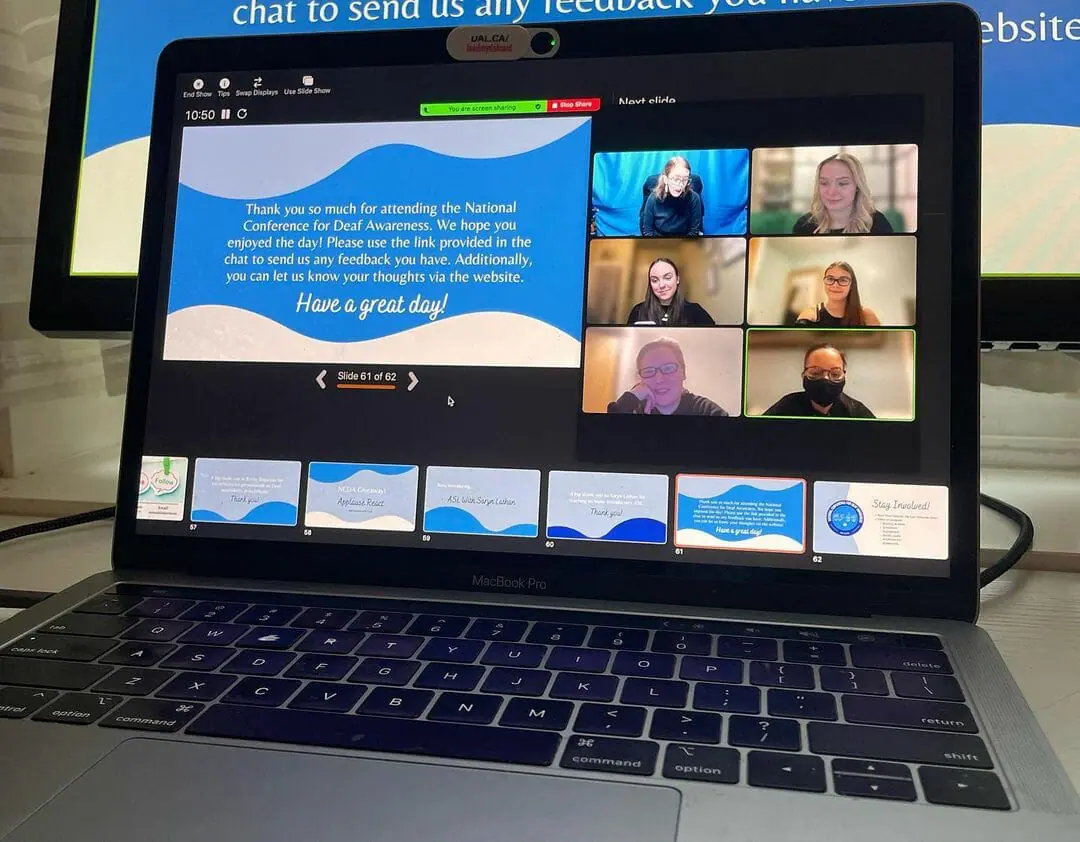The National Conference for Deaf Awareness (NCDA) held its inaugural conference virtually on Feb. 5, 2022.
The NCDA was founded in March 2021, when Sarah Corbeil, founder of Queen’s American Sign Language (QASL) at Queen’s University, and Aline Maybank, founder of Dalhousie American Sign Language Society (DalASL), decided it was time to collaborate on something much bigger.
Bringing communities together
Corbeil and Maybank are both from the hearing community and wanted to educate not only themselves but people all across Canada.
“[The conference] was really to act like a platform for deaf presenters to be able to share life experiences, or just information about being a deaf person, with hearing individuals,” says Maybank.
The conference discussed four topics: deaf culture, beginner ASL, accessibility of healthcare and audism.
Audism is the discrimination and prejudice against those who are deaf or hard-of-hearing.
Corbeil hopes to help bridge the gap between the deaf community and the hearing community.
“Our goal this whole time was really about making hearing-people a little bit more aware of the deaf community and also just how to be a better ally.”
Yearning for change
Corbeil is a fourth-year undergraduate student at Queen’s University studying political science. When she started at Queen’s, she was disappointed to discover there were no ASL classes. Maybank, a third-year medical sciences student at Dalhousie University, had a similar experience.
This prompted both of them to start their own ASL societies, which eventually led to the development of NCDA.
“At Dalhousie, for example, there is no ASL class, there’s no class for deaf culture. There are no deaf professors. There’s no connection,” says Maybank.
Positive impacts
With over 200 people registering to attend the virtual conference, Corbeil and Maybank hosted everyone from students to parents and professors.
With this being the first of many planned conferences, Corbeil and Maybank have big goals for their influence in the deaf and hearing community. Maybank says she has already begun to see the conference’s effects on Dalhousie.
“We actually had a few Dalhousie professors come that are trying to rebuild their program and syllabus to make it more inclusive.”
What’s to come
The co-founders say there is an extremely high demand for what they are doing and they’re excited to watch NCDA grow over the years.
Corbeil says the team has already begun preparations for next year’s conference.
“We’re really getting excited about what it might look like next year,” she says.
Between conferences, DalASL and QASL continue to hold their own events and will often invite each other to attend.
Using the traction the conference has gained, Corbeil hopes to propel QASL’s impact initiative forward to help create positive change at Queen’s.
“We might work on trying to make Queen’s University a lot more inclusive and accessible as a space for incoming students who might be deaf or hard of hearing.”
The women aim to keep the conference barrier-free for anyone who wants to attend. This means no cover charge to register and holding the conference virtually so people can join from all over the world.
“We’re hoping to do this every year, if possible and just kind of grow this even more,” says Corbeil. “So, I think with time, the ratio will be even greater, and people will be learning a ton of really new things, there will be a huge amount of connections.”


Recent Comments